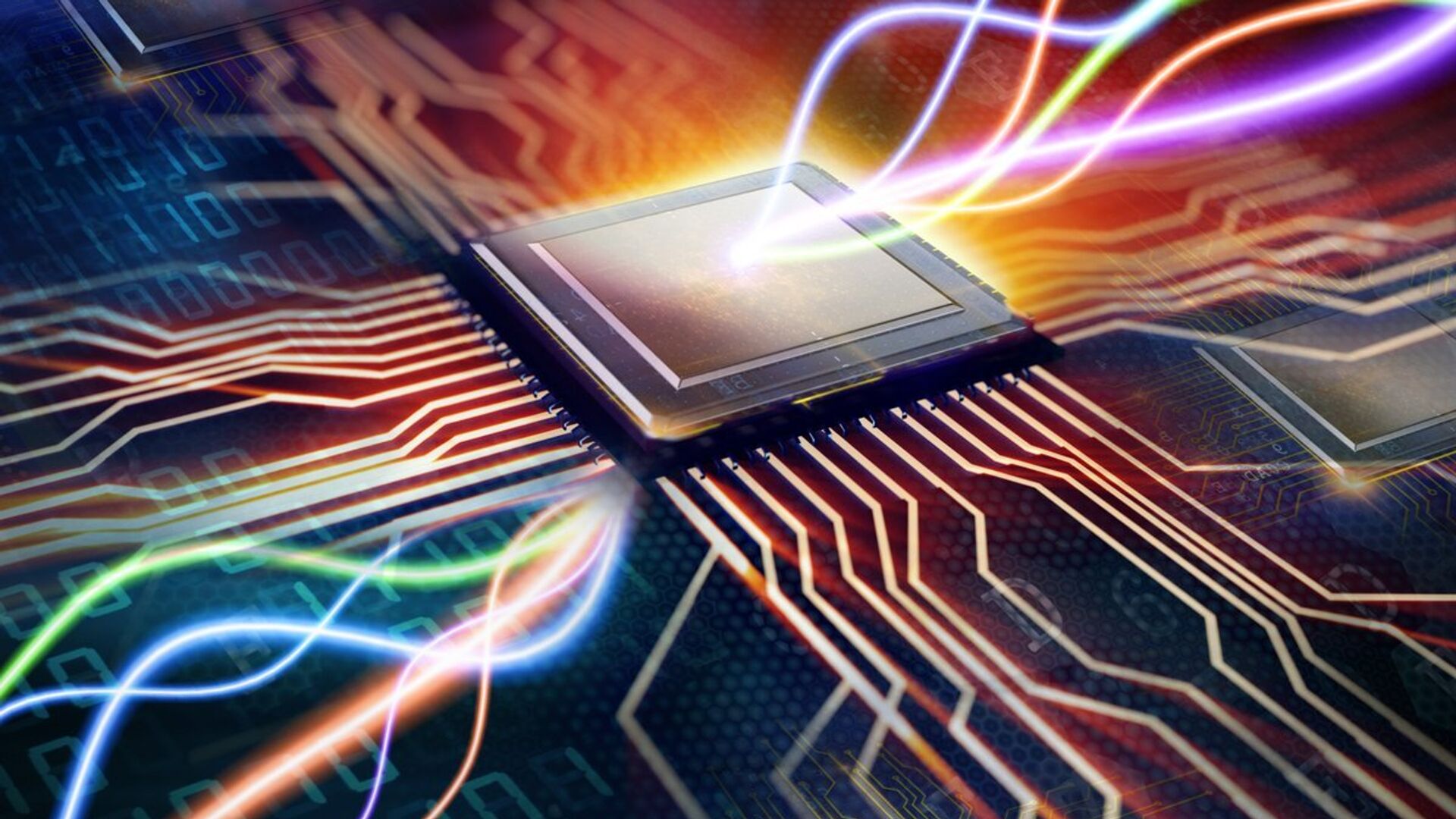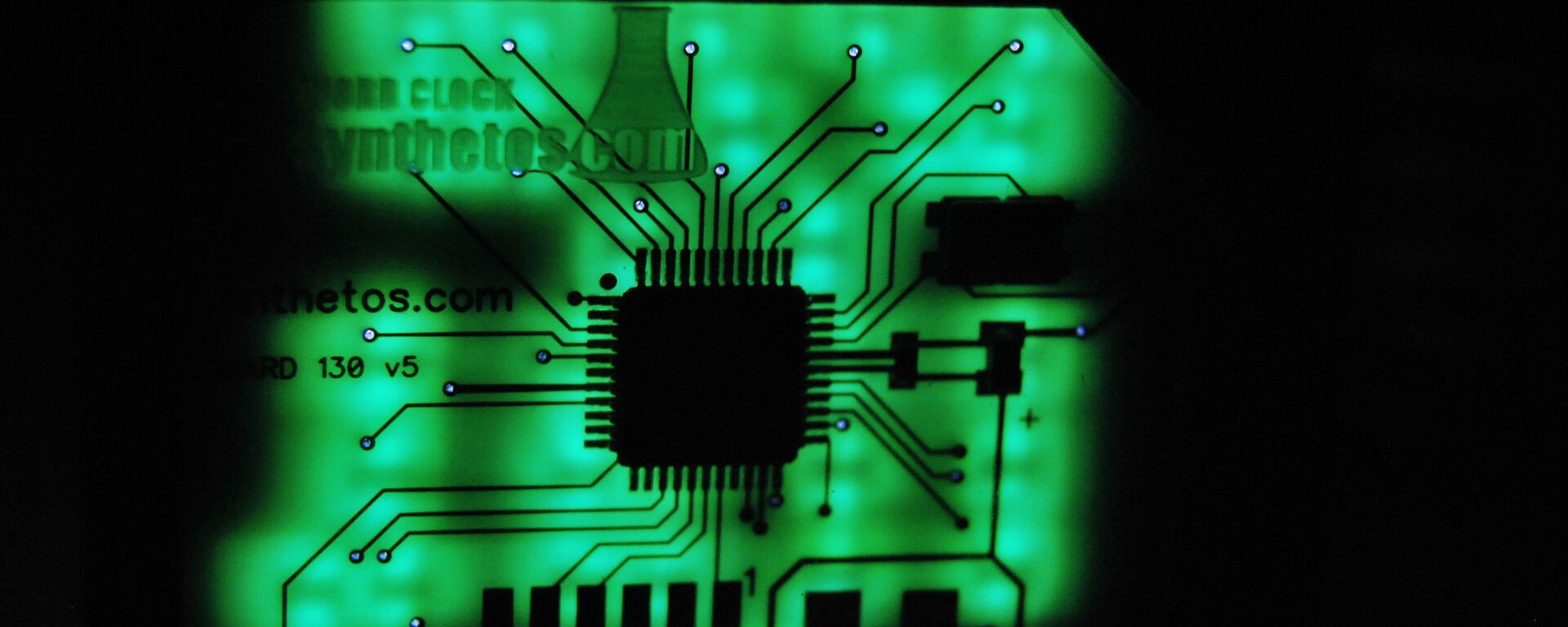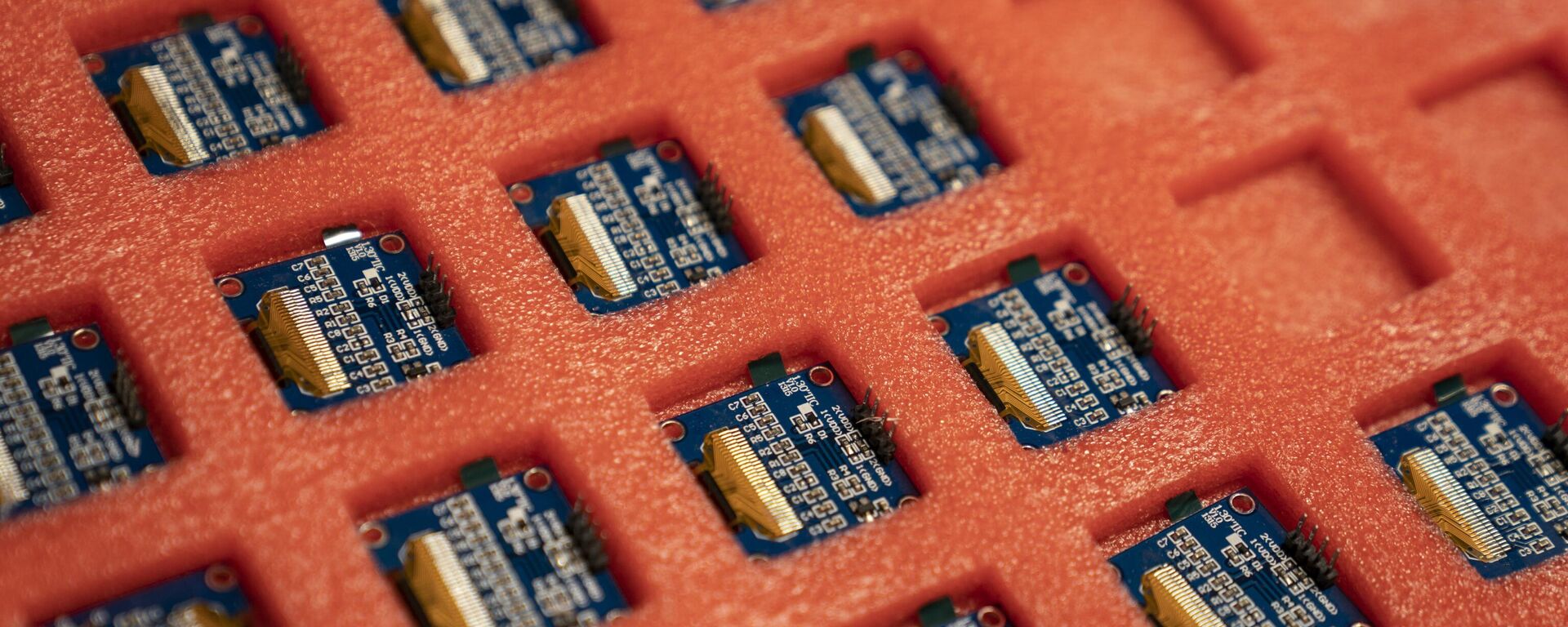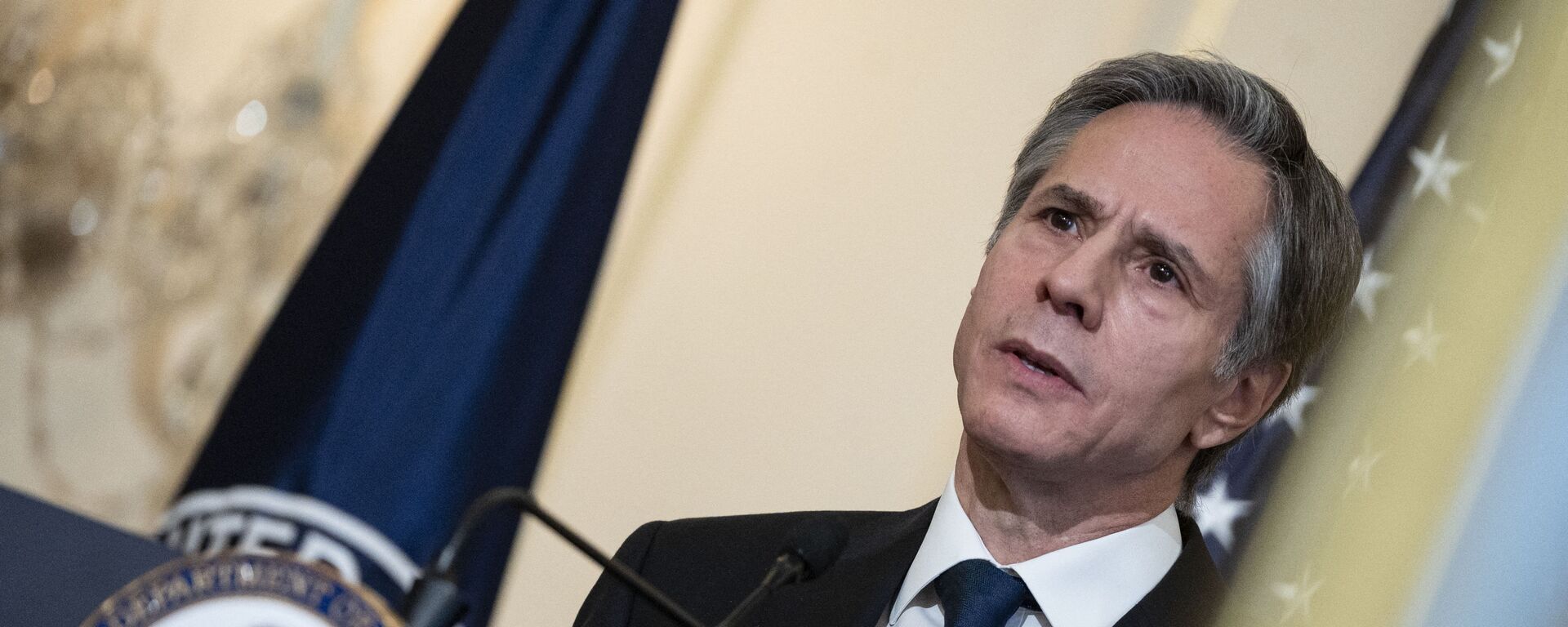Why Didn’t Team Biden See This Coming?
Biden Administration’s ‘Childish’ China Policy
China’s ban is a response to the West’s not-so-well thought out strategy of economically decoupling from the People’s Republic, Asia-Pacific consultant Thomas W. Pauken told Sputnik.

China has imposed restrictions on exporting two strategic raw materials, gallium and germanium, which are crucial for the world’s electronic chip-making industry.
The US mainstream press called Beijing’s move a “second counter-measure” in the unfolding Sino-American tech confrontation, which followed the People’s Republic sanctioning America’s Micron Technology (MU) in May.
Last October, the Biden administration unveiled an unprecedented set of export controls that restricted Chinese companies from purchasing advanced chips made anywhere in the world using US technology, as well as chip-making equipment.
The US media noted at the time that Washington’s move would thwart “China’s technological ambitions,” bragging that the global semiconductor industry was “almost entirely” dependent on the US and its allies. Now the American newspapers are admitting China has played “a trump card in the chip war.”
“I find it rather laughable that [the Biden administration] actually thought that they’re going to win this tech war,” Thomas W. Pauken II, the author of US vs China: From Trade War to Reciprocal Deal, and a consultant on Asia-Pacific affairs, told Sputnik. “You don’t have access to the rare earth, you don’t have access to the supply chains in order to produce these electronics – you’re totally destroyed, you’re devastated, the US knew about this. They knew how much they were reliant on the rare earths. They knew how much they had to rely on China in order to reshore their factories. And instead of trying to find ways to cooperate, they just decided to go ahead and just do these no nasty, terrible attacks against China and then just somehow think they’re going to score a victory here.”

China to Restrict Export of Semiconductor Manufacturing Metals
Why Didn’t Team Biden See This Coming?
The People’s Republic boasts 63% of the world’s rare earth mining, 85% of processing, and 92% of magnet production. As per the 2022 US Geological Survey, between 2017 and 2020 the United States imported a whopping 78% of its rare earth metals from China, followed by Estonia (6%), Malaysia (5%) and Japan (4%).
Back in 2019, the Asian giant warned the Trump administration about including rare earths in Beijing’s technology-export restrictions, as Washington stepped up pressure on Chinese telecom firm Huawei.
Donald Trump’s successor, Joe Biden, continued to raise the stakes in a technological tit-for-tat with China by implementing the CHIPS and Science Act in August 2022 and introducing semiconductor restrictions last October. In December 2022, US policy-makers were lively discussing possible bans on TikTok, a Chinese short-form video hosting service.
Speaking to Sputnik at the time, Pauken projected that Biden’s China strategy would eventually backfire on Washington. “If the US moves forward on decoupling, they’re only hurting themselves, because most of the supply chains on the high-tech side originate from China,” the Asia-Pacific consultant warned last December.
Given that 94% of the world’s gallium and 83% of germanium is produced in China, the US may find itself in a heap of trouble in the aftermath of Beijing’s export ban, according to the expert.
“You have to realize that a lot of the electronics are produced and need these rare earths ingredients,” Pauken said. “Without these rare earth ingredients, they can do absolutely nothing. This is an absolutely devastating hit to the US markets. And obviously, if they want to continue this policy of decoupling from China, it’s only going to hit them harder and harder. I’m not too sure why these countries thought they could somehow strike against China and then not get hit back by the country. This is basic reciprocity. Reciprocity means that if you hit one country with trade barriers, the other country is going to also respond with their own type of trade barriers as well. And so these tariffs are absolutely important to American factories, and they’re going to be shut down and they’re going to have a very hard time continuing their operations.”
 Semi-conductor chips are assembled and organized on a workbench before a ribbon-cutting ceremony to mark the opening of a Nanotronics manufacturing center at the Brooklyn Navy Yard, Wednesday, April 28, 2021, in the Brooklyn borough of New York. – Sputnik International, 1920, 22.05.2023
Semi-conductor chips are assembled and organized on a workbench before a ribbon-cutting ceremony to mark the opening of a Nanotronics manufacturing center at the Brooklyn Navy Yard, Wednesday, April 28, 2021, in the Brooklyn borough of New York. – Sputnik International, 1920, 22.05.2023
Beijing Banning Micron Means China Has Mastered Chip-Making
Biden Administration’s ‘Childish’ China Policy
Pauken criticized the Biden administration’s China policy as inconsistent and “childish”. He referred to the Chinese “spy balloon” incident which made a lot of fuss in the US but eventually turned out to be a nothingburger: “A few days ago, we discovered that the spy balloon was not even a spy balloon, it was not even monitoring the US,” the expert remarked.
To complicate matters further, Joe Biden publicly dubbed his Chinese counterpart, Chairman Xi Jinping, a “dictator” almost immediately after Secretary of State Antony Blinken’s recent trip to Beijing.
Treasury Secretary Janet Yellen’s forthcoming visit to the People’s Republic is also surrounded by controversies, given that the White House is considering an order restricting investments in China.
 US Secretary of State Antony Blinken delivers remarks about priorities for administration of US President Joe Biden in the Ben Franklin room at the State Department in Washington, DC on March 3, 2021. – Sputnik International, 1920, 25.06.2023
US Secretary of State Antony Blinken delivers remarks about priorities for administration of US President Joe Biden in the Ben Franklin room at the State Department in Washington, DC on March 3, 2021. – Sputnik International, 1920, 25.06.2023
‘He Speaks For Us All’: Blinken Defends Biden’s ‘Dictator’ Remark on Xi
According to Pauken, Biden’s China experts both misunderstand and underestimate the People’s Republic’s odds of withstanding the pressure and coming out on top.
For instance, while commenting on Beijing’s ban on Micron Technology in May, the Asia-Pacific consultant drew attention to the fact that the move apparently shows that China is no longer as “dependent” on the US semiconductor industry as it used to be.
“Obviously, [the Chinese] have probably set up supply chains in place and have chips made in China that are maybe not equal in quality to Micron, but close enough so that they could handle the impact of no more Micron chips coming to China,” the expert suggested at the time.
“[Biden aides are] trying to take control of the US foreign policy, which is absolutely disastrous right now,” said Pauken, commenting on the recent ban. “And these are the people who are probably working for Biden, trying to think that he’s going to win and he’s going to end up coming out a big loser and they’re going to destroy the US economy. (…) The only way to turn away from this is for countries to try to find ways to improve their trade deals with China. And if they find that they can improve their relations with China, they will likely not be hit hard by this rare earths export ban.”
By Ekaterina Blinova
Published by Sputnik Globe
Republished by The 21st Century
The views expressed in this article are solely those of the author and do not necessarily reflect the opinions of 21cir.com
